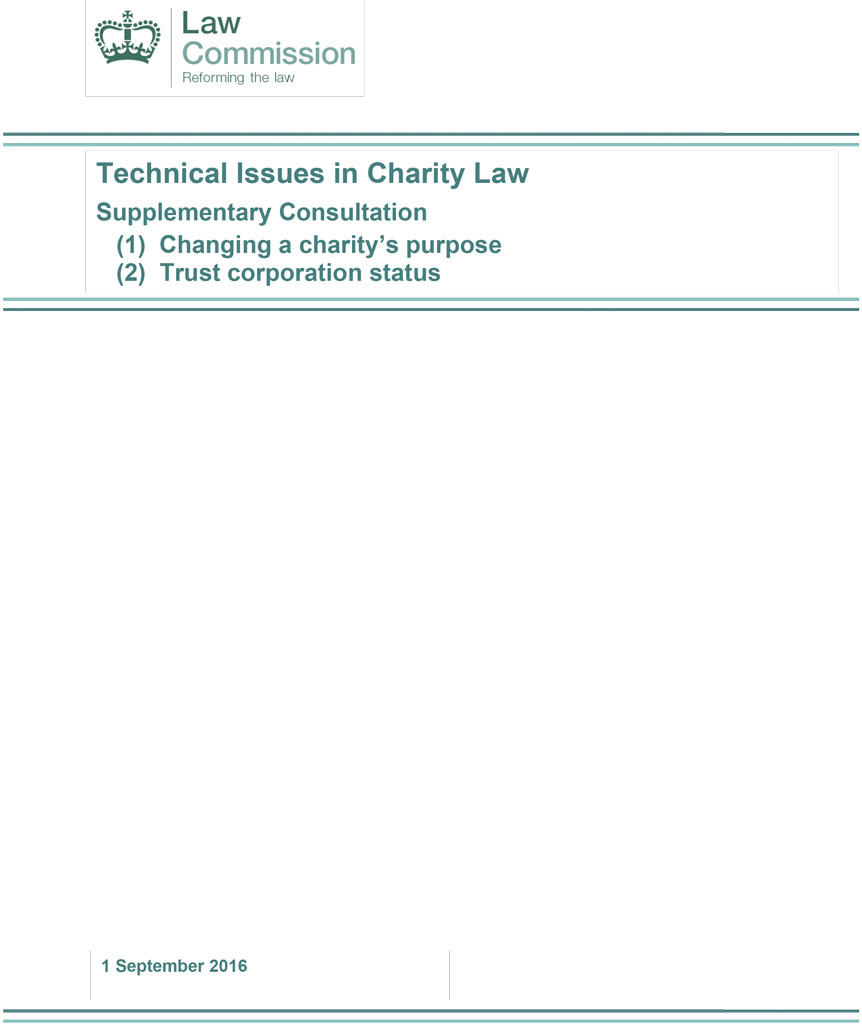
Giselle Davies & Bethan Walsh outline what to expect from the Law Commission’s recent consultation on charity law
- An analysis of the Law Commission Supplementary Consultation on Technical Issues in Charity Law.
The Law Commission recently entered into supplementary consultation on two further technical points where reforms are proposed after these were raised by respondents during its Consultation on Technical Issues in Charity Law last year.
The first proposal would allow unincorporated charities to change their purposes in the same way as corporate charities do. The second proposal would make it easier for incorporated charities to achieve “trust corporation” status.
Unincorporated & incorporated charities
“Charity” is a status rather than a legal structure. Legal structures fall into one of two categories; unincorporated (such as Trusts and Associations) and incorporated (such as companies, charitable incorporated organisations (CIOs) and community benefit societies).
An unincorporated charity has no legal personality separate from its trustees so the trustees must enter into contracts personally on behalf of the charity and this raises issues of personal liability







.tmb-mov69x69.jpg?sfvrsn=3d1684d4_1)

